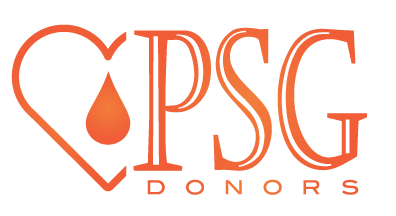 PSG proudly announces the launch of our new, donor-centered website – www.PSGDonors.com!
PSG proudly announces the launch of our new, donor-centered website – www.PSGDonors.com!
Please visit the site to view our innovative donor video, updated FAQs -, new donor form -, current paid studies, and “PSG + You page”.
We value our donors as the a vital and critical link in the diagnostic process. Without your plasma donations, it would be impossible to manufacture test kits and advance research!
Thank you to all of our donors for making a difference, and we hope you find the new site helpful.
Frequently Asked Questions.
Antibodies are a part of our immune system that helps identify and fight off foreign substances such as viruses and bacteria. The body creates antibodies to fight off “outside” foreign invaders. However, sometimes a person’s immune system may produce what is known as an autoimmune antibody response. When this happens, the antibodies target the person’s own immune system and can cause an autoimmune disorder. Antibodies are needed by medical research and diagnostic companies in the scientific and medical industries in order for them to diagnose, treat and prevent disease.
Medical research, product development and manufacturing industries rely on antibody rich plasma donations from people like you to treat or prevent diseases, to produce therapeutic agents and medicines and to manufacture diagnostic test kits. They are also used in state, national and international quality control proficiency testing services.
Plasma is the liquid portion of blood that is made up of various blood proteins. Plasma is about 50-60% of a person’s blood volume. The other main blood components are red and white blood cells and platelets. All these components combined are referred to as whole blood. Unlike whole blood, plasma is quickly produced by your body. As a result, you can safely donate plasma up to two times in a seven-day period.
Donating plasma is a special type of blood donation. During the donation, only a small amount of plasma is obtained from the donor. The amount a person donates is regulated by the FDA and is usually based on their body weight. The entire procedure is aseptic, so all supplies used during the process are sterile and NEVER reused. Plasma donations are one of the most highly regulated procedures in the American health industry. There are many licensed plasma collection centers throughout the US. However, only a select few are properly equipped and licensed for specialty antibody collection. If there is no donation center near you, we can provide transportation. Overall, there are over 13 million successful plasma collections performed each year.
We value your time and interest. Not everyone qualifies for our program. We will need to draw a blood sample to test your antibody levels. To facilitate your qualification, we can send a phlebotomist to your home or office to collect the sample. We will then contact you in a few days to a few weeks to inform you of your qualification.
Our donor centers adhere to all Federal regulations known as HIPAA. These newest guidelines were created to protect the donor’s privacy and rights. Even though Plasma Services Group’s plasma donations are used by other research and diagnostic companies, donor identities and any other confidential donor information are NEVER released. Your decision to participate in the program will not be disclosed to anyone other than your physician and the donor center’s medical director.
If you are being treated by your doctor, you may be asked to sign a release that allows your physician’s office to share personal information with us to consider you as a new antibody donor. This release will allow us to contact you directly to provide you with additional program information.
Once you are scheduled for a donation appointment, you will be further evaluated at the plasma center by a medical professional to ensure that you are a good candidate and can safely donate.
Plan to spend up to 2 hours at the donor center. You will be given a brief physical by a medical professional to assure that you will not be adversely affected by the donation process and that you meet the minimum FDA requirements for donating blood. You will be asked about your medical history and maybe given standard urinalysis and other lab tests as required by the FDA. When it is time to donate, you will be escorted to the donor station by a nurse or phlebotomist where an IV will be placed in your arm. You will be monitored throughout the process to ensure your safety and comfort.
For more information or to schedule an appointment please contact our Donor Recruitment Manager at 1-215-355-1288 ext. 306.
